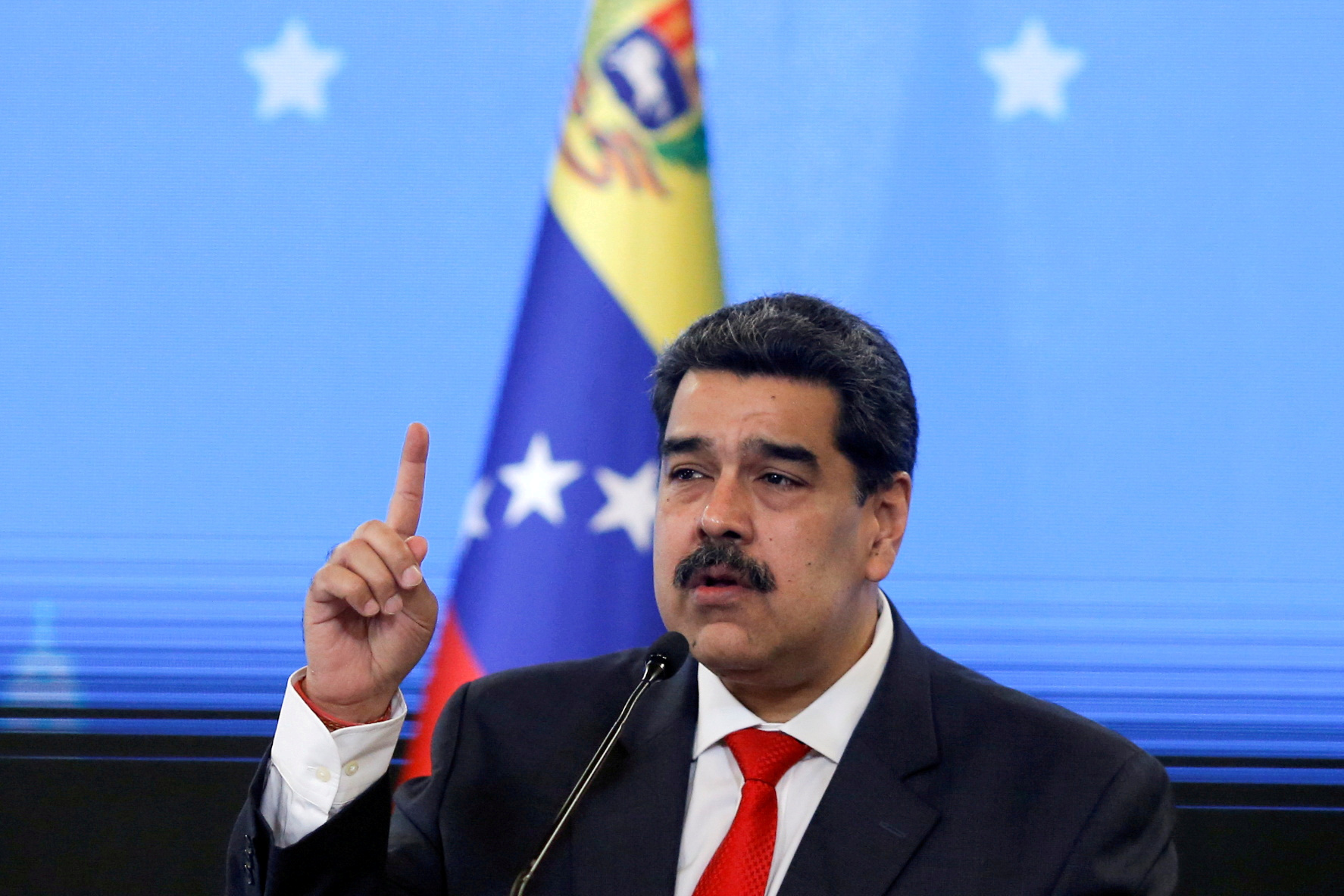Venezuela to seat socialist-held congress as Maduro consolidates power
Sign up now: Get ST's newsletters delivered to your inbox

The shift in legislative power marks a further consolidation of power for President Nicolas Maduro.
PHOTO: REUTERS
CARACAS (REUTERS) - Venezuela's ruling socialist party on Tuesday (Jan 5) will install a congress controlled by allies of President Nicolas Maduro, a change in control that many Western nations have assailed as the product of a fraudulent election.
The country's opposition, led by Mr Juan Guaido, who has served as speaker of Parliament since 2019, will seat a committee of legislators intended to rival the socialist-held National Assembly after the opposition boycotted legislative elections held on Dec 6.
But the shift in legislative power marks a further consolidation of power for Mr Maduro, who in early 2019 looked vulnerable as the United States and dozens of other countries recognised Mr Guaido as Venezuela's rightful leader, arguing Mr Maduro was a corrupt dictator who has overseen an economic collapse.
It also amounts to the symbolic end of the opposition's five-year struggle to weaken Mr Maduro after winning a 2015 landslide victory in parliamentary elections, even if the change will mean little in concrete terms either for Mr Maduro or his adversaries.
Control of the Parliament will give the ruling socialists little capacity to improve a crippled economy hemmed in by sanctions. And Mr Maduro's allies in the country's Supreme Court had already for years neutered the opposition legislature by shooting down every one of its measures.
The Trump administration has recognised the opposition-held congress' one-year extension of its own term, but other international supporters of Mr Guaido, including the European Union, have yet to agree the opposition still rightfully controls Parliament.
The move has also generated rifts within Mr Guaido's coalition, with one major opposition party abstaining from the vote on the extension and several individual lawmakers announcing they would stop serving as legislators after Jan 5.
The looming inauguration of US President-elect Joe Biden on Jan 20, after years of escalating US sanctions and diplomatic pressure on Mr Maduro under Mr Trump, represents another uncertainty for Mr Guaido.
Mr Biden has repeatedly labelled Mr Maduro a dictator and has said he would work with other countries to seek free and fair elections in Venezuela but has not laid out details of policies he plans to implement toward the oil-rich nation.
A representative of Mr Biden's team did not immediately reply on Monday when asked if his administration would continue recognising Mr Guaido as the head of Parliament.
"An important part of the opposition has adopted the extremist vision that was imposed from Washington during the Trump era," Mr Maduro said in a television interview on Jan 1."The Trump era is ending. We will see how that part of the opposition reacts."
Mr Maduro calls Mr Guaido a US-backed puppet seeking to oust him in a coup to control Venezuela's considerable oil reserves. He has said the Dec 6 elections had the same electoral conditions as the 2015 vote won by the opposition.
Mr Maduro, who retains the support of the armed forces and allies like Cuba, Russia and Iran, has since barred opposition lawmakers from meeting in congressional headquarters, and pushed dozens of legislators into exile.
But Mr Guaido has vowed to press on. He promised a "diplomatic offensive" to ensure as many countries as possible refused to recognise the legitimacy of the socialist-held congress, and called on supporters to take to the streets.
"The national Parliament will not be stopped until we have seen free elections take place in Venezuela," he said in a video message posted to Twitter on Sunday.


